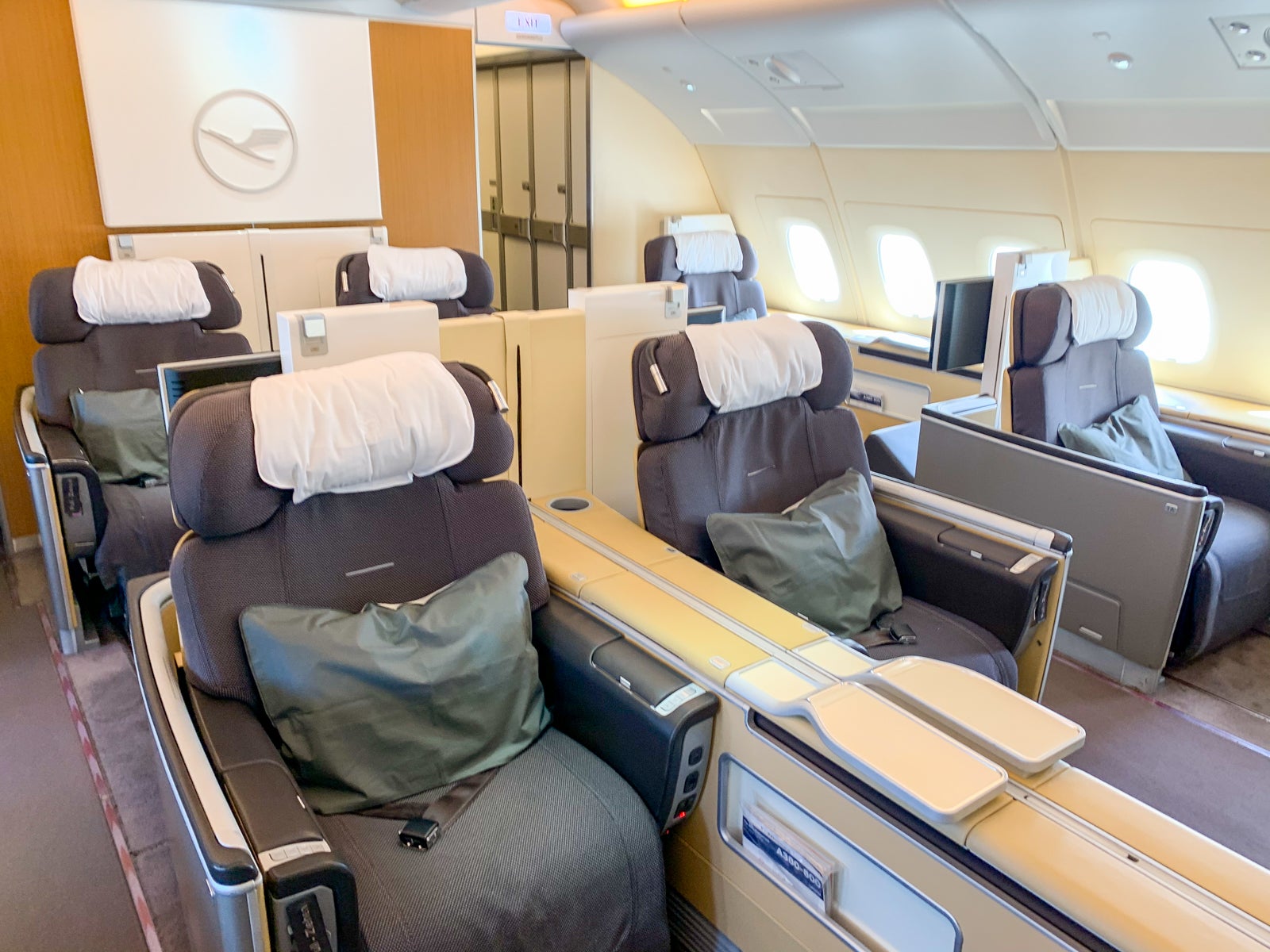Why Aeroplan’s higher redemption rates may actually be a better deal
When the new Aeroplan launches on Nov. 8, a brand-new partner award chart is going to kick in too.
Fortunately, there will still be an actual award chart, instead of a shift to dynamic pricing. But if you inspect the chart closely, you'll find that many partner business and first-class awards will require more points than before.
On the surface, a price jump would spell bad news. However, that's not necessarily the case.
Sign up for the free daily TPG newsletter for more airline news!
The elimination of surcharges
Though award charts are sticking around, carrier-imposed surcharges are not. That's right — Aeroplan is removing those pesky fees that can sometimes strip much of the value from an award ticket.
Previously, when booking an award flight through Aeroplan, some partners didn't have surcharges — and that's how I'd typically recommend booking awards with the program.
For some partners, like Lufthansa, the fees on premium-cabin awards — YQ/YR in industry parlance — could easily exceed $1,000 USD. In addition to Lufthansa, Aeroplan levied surcharges on Air Canada, Air China, ANA, Austrian Airlines, LOT and Thai.
But going forward, you won't see surcharges with the new Aeroplan. And for those carriers that used to have surcharges, especially those on the higher end (Air Canada, Austrian and Lufthansa), this elimination definitely helps offset the higher redemption rates.
Related: 19 things you need to know about redeeming with the new Aeroplan

Why higher redemption rates aren't necessarily bad news
With the new Aeroplan, there are no more surcharges. And sometimes, the additional points requirement is well worth it in exchange for reduced fees.
Let's take a look at an example. Consider flying Lufthansa first class one-way from Los Angeles to Frankfurt, connecting to Paris in business class.
Today, that award costs 70,000 miles and $1,160.66 CAD ($866.40 USD), of which $1,097.63 CAD ($819.36 USD) represent the fuel surcharges.
When the new pricing launches, the award will jump to 100,000 points, but the taxes will be about $820 USD less. You'll also save on the U.S. Passenger Facility Charge as part of the new program. Note that you'll be charged the new $39 CAD ($29 USD) partner booking fee though.
All in, expect to pay 100,000 points and ~$70 USD for the itinerary. Though the mileage rate increased by 30,000, you're also saving about $800 USD compared to today's pricing. Saving $800 USD for an additional 30,000 points is a great deal in my book. That's like getting a redemption rate of 2.6 cents per mile, well above the current TPG Aeroplan valuation of 1.5 cents per mile.
The same exercise applies to many other premium cabin bookings on Austrian and Lufthansa. The fuel surcharge savings far outweigh the additional points required.
Related: Reviewing Lufthansa first class on the Airbus A380
For some partners, removing surcharges is a devaluation
Though Aeroplan today charges sky-high surcharges for a few select partners, the majority of partner bookings aren't subject to such fees.
In that case, when comparing the new program to the old, your redemptions will be devalued.
For example, consider this Swiss itinerary from Chicago to Zurich in business class. Today, you're charged 55,000 miles and $7.51 CAD ($5.60 USD).
When the new pricing takes effect, you'll need 65,000 points and $5.60 USD, as well as the $29 USD partner booking fee. In addition to the 10,000-point bump, the taxes and fees increase by the value of the booking fee.
As such, this is unequivocally a devaluation for partner itineraries that weren't previously subject to carrier surcharges.
On the whole, the new program is better for flights to Europe
Nonetheless, I'd say that this new pricing this evens out for North American flyers headed to Europe.
Of the Star Alliance carriers flying from the U.S. to Europe, Lufthansa is one of the best about releasing premium-cabin award space (at least this was the case pre-pandemic). Finding award space on Swiss or United was often much harder.
As such, many people avoided booking with Aeroplan when their only option was Lufthansa (of course, the carrier's wholly average business class product could be a factor too).
Now, you'll have less of a reason to avoid Lufthansa flights. Plus, with the ability to add a stopover for just 5,000 points, I'd definitely consider booking my next trip to Europe with Aeroplan.
Lufthansa flights from Europe typically don't carry surcharges as high as those in the other direction. In that case, it's a route-by-route calculation of whether the old or new Aeroplan is better.
Related: Why Aeroplan's generous stopover option adds even more value to Amex cards
How other Star Alliance programs handle surcharges
Aeroplan's two main Star Alliance loyalty program competitors are Avianca Lifemiles and United MileagePlus.
Lifemiles doesn't add surcharges to partner tickets. There's just a flat $25 award booking fee for all itineraries. The program doesn't charge any close-in fees either. Note that Lifemiles has historically only had access to a subset of Star Alliance award availability.
MileagePlus also doesn't impose surcharges on partner tickets, nor does it have an award booking fee. However, United has adopted close-in pricing, which typically equates to a few thousand extra miles for flights booked within three weeks of departure.
Bottom line
It's easy to think of the new, higher Aeroplan redemption rates as a clear-cut devaluation. The truth, however, is that it's more nuanced.
Because Aeroplan is also eliminating carrier surcharges across the board, partner flights that previously had heavy fees will now be cheaper than before.
Of course, the opposite is true for Aeroplan bookings that didn't previously carry fuel surcharges. But at least some redemptions are actually a better deal than before.
